How Fossil Student, Thomas Henry, deals with the destruction of his home city, Kyiv
St. Michael’s Cathedral is important to many Ukrainians as a symbol of strength against the Soviet Union.
Each day people are growing more and more desensitized to all the news surrounding politicians, celebrities, COVID-19, and a variety of other things. However, on February 24, people watched their news channels with wide eyes and dropped jaws as Russia began it’s invasion into Ukraine. Many people began to speculate things like: what could this mean for our world? Will the United States need to get involved?
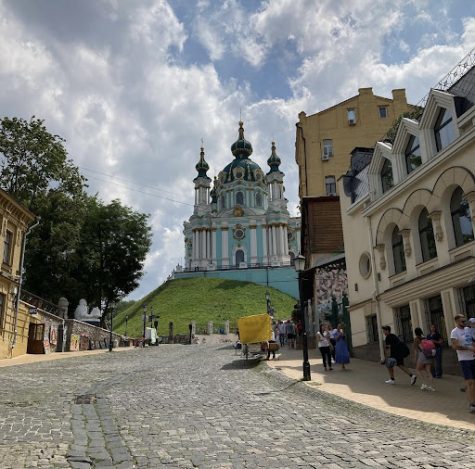
For Fossil Ridge High School junior, Thomas Henry, a different speculation arose, “What am I gonna do?”
Henry was born in France, but moved to Ukraine when he was three years old. During his time in Ukraine, Henry and his family lived in the capital, Kyiv. Some of Henry’s favorite memories of Ukraine include going for walks in the parks, visiting the circus, and eating delicious food.
Anxiously waiting for the opportunity to return back to his homeland once again, the Russian invasion turned Henry’s world completely upside down. Henry does not feel ready to see his home, filled with so many precious memories, become completely unrecognizable, plagued by death and destruction of the war.
“Usually we come back and we have fun and we see all the places that I saw when I was a kid and they were so normal and I’m gonna come back and it’s just gonna be horrible.” said Henry.
Four years ago, Henry moved to the United States where he has lived ever since. He explains that he visits Ukraine fairly often and hopes to be able to return in the future.
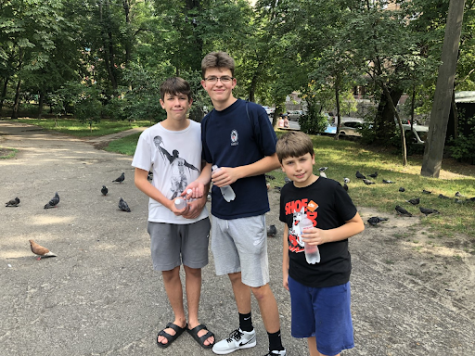
“I want to live there. Permanently. I’m definitely thinking of coming back. It’s constantly on my mind. During COVID we couldn’t come back for a year. It was horrible. It was a good summer, but I was so sad. Last year we were able to come back and it was pretty great.”
Henry recalls that he remembers the beginning of the conflict between Ukraine and Russia, back in February of 2014, when Ukrainian citizens took action to overthrow their president, Viktor Yanukovych. Henry was still living in Ukraine during the start of the revolution.
“He wanted to side with Russia and the people didn’t like that,” explained Henry. These uprisings and protests against the government became formally known as the Revolution of Dignity or the Maidan Revolution. It was a huge step for Ukrainian citizens, for they were able to successfully remove Yanukovych from rule.
After the height of the Maidan Revolution, tensions still remained between Russia and Ukraine. Many were worried for the day that violence would break out again.
“I didn’t want to admit it to myself, because I really was hoping that it wouldn’t happen,” said Henry. “And I think the thing is, as I’ve said, it’s been eight years since we’ve been at war with Russia. So people have been living their lives like nothing happened, you know, there haven’t been bombardments in Kyiv. It didn’t affect us. It affected the people in the East and many of them, I guess, wanted to be Russian. So this way, we were like, okay, too bad for them. And then this happened, and it’s like we’re at war, you know? So it really hits you. Hard.”
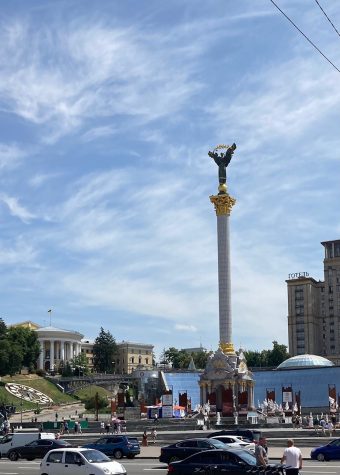
Henry says that he remembers the exact moment he received the news, “It was 10 p.m. and I got the notification that Russia has started the invasion in Ukraine and I was like, ‘This can’t be real.’ You know, it was horrible. It’s so sad. It happened so quickly.” said Henry.
“My mom also knew, which, my mom never watches the news. My grandma was downstairs watching the TV. She was crying, [she] has not turned off the TV ever since, [it] has been pretty tough for her.”
As for his family that still remains in Kyiv, Henry says that his relatives have chosen to stay to help fight against Russian troops.
“My uncle, so my mom’s cousin and his parents, they’re still in Kyiv and they actually stayed to fight. They literally got the guns and they are fighting right now. And they might be dead, because if they’re dead, my parents won’t tell me.”
Henry tries to keep in contact with friends and family back home as often as he can, and his family has helped Ukraine by donating money and lending their apartments to those that need it.
It is hard to see what the future of this conflict will be, but Henry has faith and hope for his country.
“People do not believe that Russia has a chance to win and I agree with them… Ukrainian people know how to fight and it’s this thing of not giving up. I definitely think that’s a part of my personality,” said Henry.
It is a strange feeling going to school every day, going through your normal daily routine, while knowing that a war is breaking out where you keep your dearest memories. Henry explains that very frequently students have asked him about the conflict and his thoughts on it and that it can feel very overwhelming.
“I wish they understood that this is a real thing,” said Henry.
“I said no to this interview, initially, just because everybody was asking [me] the same question. ‘What do you think about Ukraine?’… And so people asked me a lot about that in the morning, but after that, I think it’s kind of like the hype got away. Now, it’s calmed down. I’m happy to talk about it because I realized that I’m probably gonna go this summer to help…” he adds.
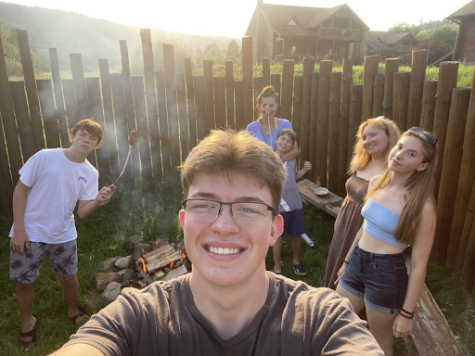
Clearing up misconceptions around Russian influence on Ukraine, Henry hopes that people understand the cultural differences between the two.
“I think overall if you look at your Slavic nations, sure, they’re similar, but I think once you get to know your culture, you see so many differences, it almost becomes offensive when people are like ‘oh, it’s the same thing’.”
As a neighboring country to Russia, there are many culture clashes between the two nations, especially in terms of language. Henry explains that the war, wealth, and history of the Soviet Union have caused the tendencies of whether people choose to speak Russian or Ukrainian to fluctuate over the years.
“What’s interesting is that Ukrainian people don’t find it different because most people speak both. In the east, closer to Russia, basically almost no people speak Ukrainian. But now they’re learning, just obviously to piss off Russia. It used to be mostly 50 50. And usually the richer population would speak Russian. Because obviously they were oligarchs and they got a better education during the Soviet Union where most people spoke Russian. So ever since the Soviet Union, Ukrainian has been coming back much more and especially during the war now, nobody speaks Russian, like literally people that will have spoken Russian their whole life and will not know Ukrainian will be 40 years old and they will learn Ukrainian just to piss off the Russians and you’ll see it by their accent which is very interesting because I have never met a Russian person that has spoken Ukrainian because they’re too high for that.” said Henry.
A large reason that Russia lays such a heavy claim on Ukraine is because of the expansiveness of Russian being spoken in Ukraine. Russia’s president, Vladimir Putin, believes that the Russian-speaking Ukrainians belong under Russia’s rule. As most of the Ukrainian population speaks both languages, Putin finds a justification to take back Ukraine, for he believes that Ukraine is simply an extension of Russia. However, since 1991, when Ukraine gained its independence, Ukrainians have developed a completely separate cultural identity from Russia. This has become the driving force behind the Ukrainian desire to disconnect from Russian influence and rule.
“I think even the way that Russian is spoken in Ukraine.” he adds. “I don’t know how to explain it. I guess it is kind of like an accent but it’s less proud, the way that Russian people speak.”
An important aspect of Ukrainian culture that Henry values is hospitality. He believes that hospitality is one of the things that help keep the Ukrainian people positive during such a difficult time.
“It shows you how much they despise the people that are trying to take over the country but at the same time, the moment that [the Russians] give up they’re gonna be hugging them and being like, ‘Thank you for giving up and doing all these things.’ So it’s like, you really see there’s such a big flip between hatred and love. Many of the Russian soldiers did surrender and said like ‘I don’t understand why I’m fighting for this’ especially so many young people. You have all these young guys that their mothers don’t even know that they’re deployed.” said Henry.
In the face of fear and uncertainty, Henry believes that hope is a brighter beacon. The recent turmoil has helped bring out some of the best qualities of the Ukrainian people. These qualities such as resilience, faith, and hope, have only served to form stronger connections and unite the Ukrainian community.
Your donation will support the student journalists of Fossil Ridge High School. Your contribution will allow us to purchase equipment and cover our annual website hosting costs.
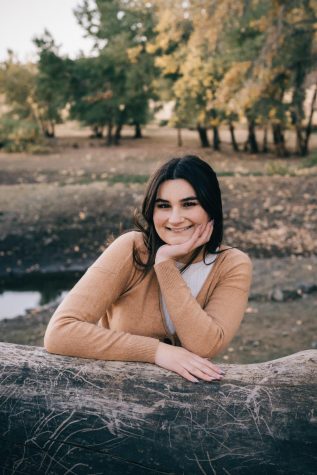
Bruna Horvath, a senior, is starting her first year in Etched in Stone. By joining, she hopes to prove to herself that it is never too late to pursue new interests. Though it is her first year in journalism, Horvath has loved to read and write for the entirety of her existence. Some major goals she has...
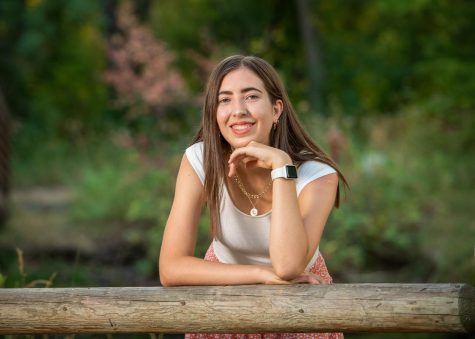
Natalie Anderson is starting her first year as a member of the Etched in Stone staff as a senior. She is excited to fill one of the many Staff Writer positions at the paper. Born and raised in Fort Collins, Anderson hopes to continue her journey in the area. After graduating from Fossil later this year,...




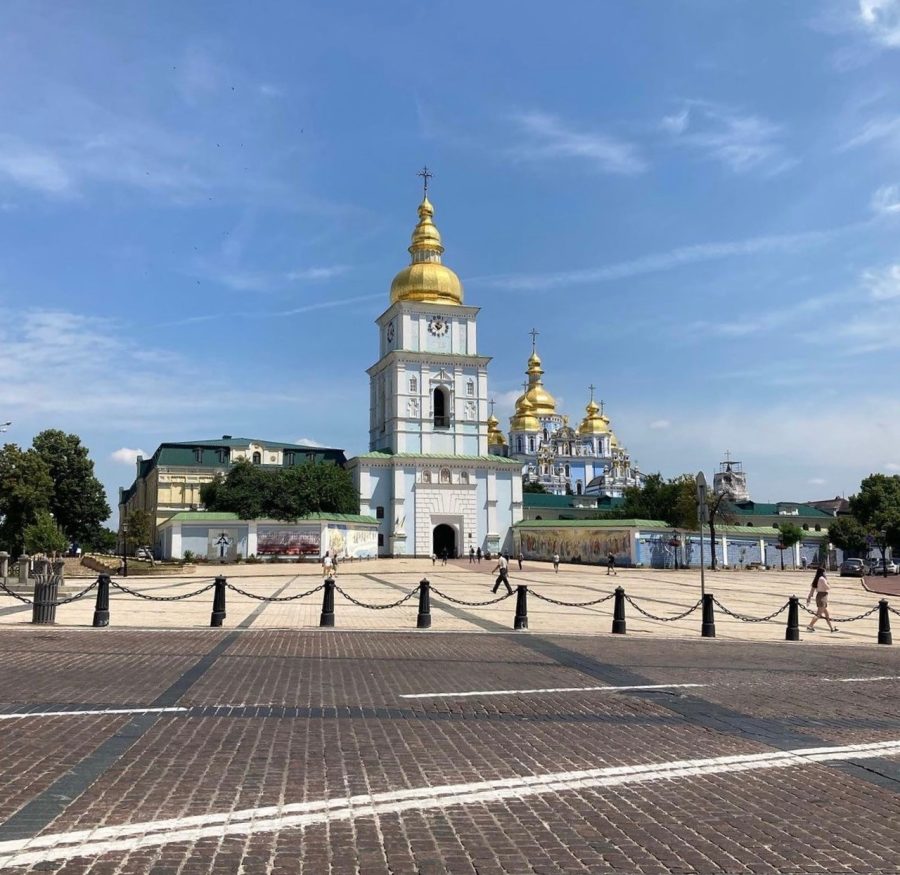
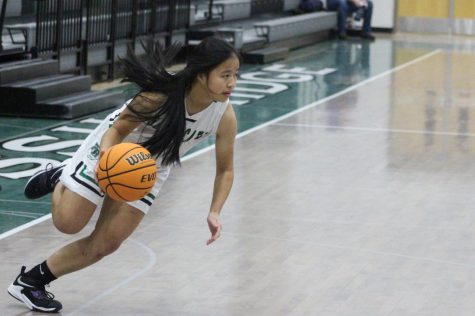
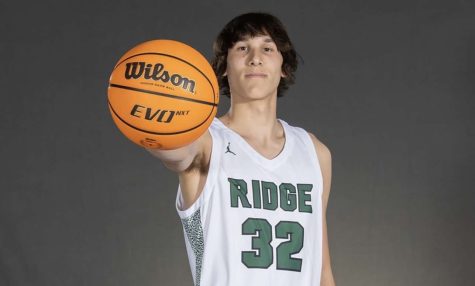
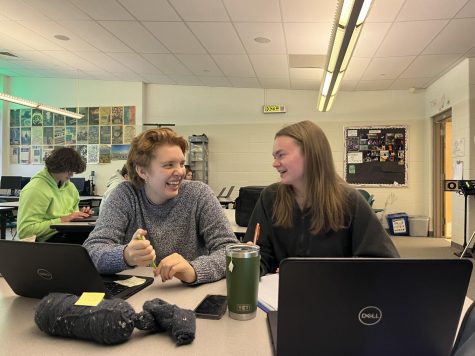
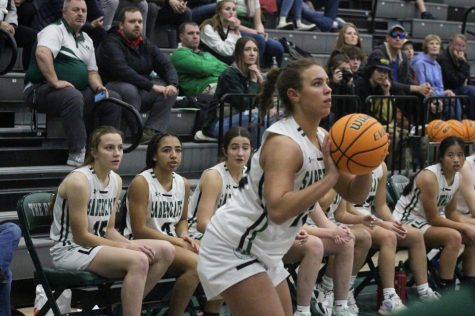
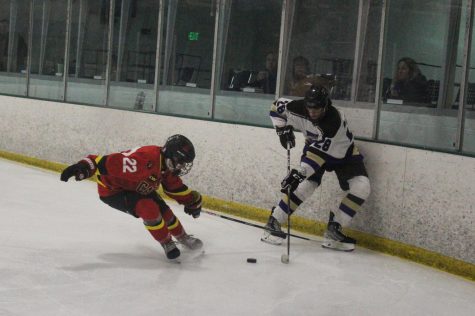
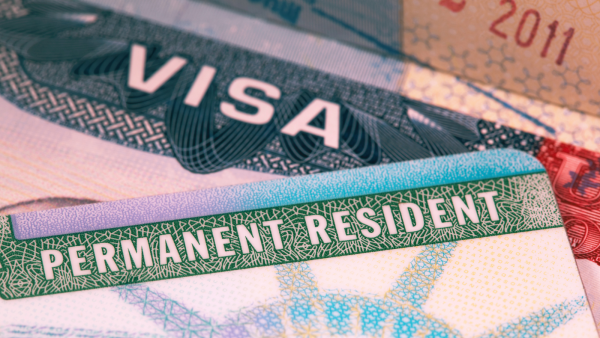
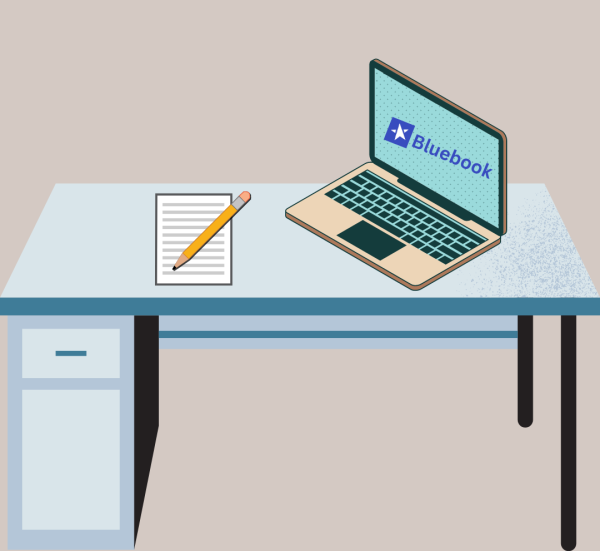
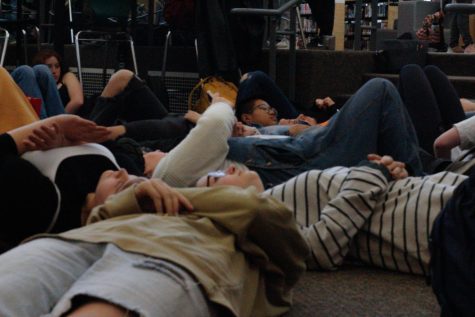
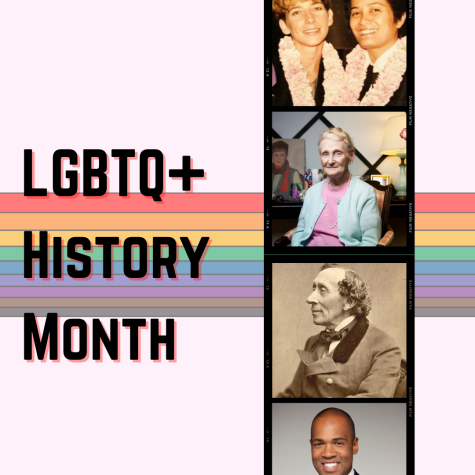
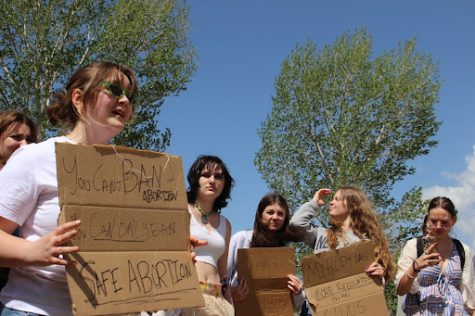
Ms. Rust • Apr 15, 2022 at 2:11 pm
Thank you for this story. And thank you to Mr. Henry for sharing his story. It’s important for all of us to understand that world events touch people we know in significant ways. I appreciate the insight provided by him and by the authors. Bravo Ms. Horvath and Ms. Anderson!